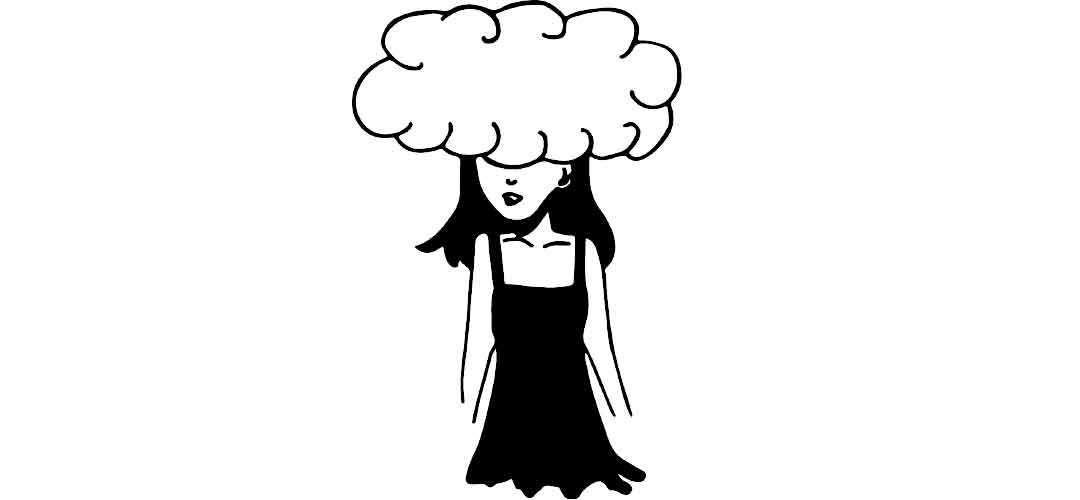
Foto: A.V.C
“It seems to be trendy now, everyone says they go to therapy” “even Justin Bieber, who’s so famous,” says Juanma “if he goes out partying and with prostitutes, how can he be doing badly…”
And I say: That is not good mental health. Consuming alcohol and other drugs, bodies, or accumulating material possessions is not a sign of mental health, rather the opposite.
There have been rumors about Justin Bieber being involved in a child abuse scandal, and as a psychologist, I know that can break you for the rest of your life, regardless of how much money or status you have.
In prison, there are people who brag about spending €8,000 on a VIP room for one night of partying, I’m sure they had a good time, right? Is that mental health? I would say it’s more of a culture of excess, immediate gratification, of not wanting to think, feel, or live within oneself, so you need something to disconnect.
Because being connected can be terrifying, especially when your mental health is not good. It’s terrifying to realize the violence around me, the boredom, the loss of a loved one that eats away at me because I didn’t even accompany them during their illness, the people I care about but treat badly or treat me poorly, but they are all I have and I cling desperately to a vicious cycle.
So, what is mental health then?
Is it going for a run in the mountains? Is it working and buying a house, exercising, having Sunday dinners with family, and leading an orderly life? Well, it doesn’t have to be, but it helps.
If you don’t have those things, it’s much harder, but sometimes, even when it seems like you have everything, you still feel empty. Sometimes, you stopped listening to yourself, taking care of yourself, and understanding yourself, following the signs your body gives you to know what you want and what you don’t, what you feel or think and acting accordingly.
Being true to oneself can be more important than the actual actions, seen as “good or bad” because beneath these considerations, there are also interests, and not all interests have the same recognition in such an unequal society.
It’s difficult to ask for help, to emotionally connect with others. And it’s even harder if you had a tough time and are always on guard, waiting for the slightest movement to react, there are fears that shoot first and ask questions later. “Let my mother cry like their mothers,” some survivors say. That constant feeling of being at war is not mental health, rather symptoms of post-traumatic stress. We have to learn to recognize them, to do something about them. Because in a war, they are very useful, but are you really still at war? Or sometimes, do you start the wars yourself? Maybe you spent so many years dealing with it that the war ended, but it’s still engraved in you, in your very core. It might still be there just in case, because you don’t know when you might need your weapons again.
It’s not easy to go for a run in the mountains armed to the teeth, how long can you endure?
Because maybe you can keep up a steady pace for three months, with tireless effort, but then you become disgusted and still feel disconnected. Maybe it’s not mentally “healthy” to do “healthy things” just because, maybe it’s a burden that reconnects you to dissatisfaction. Don’t do things “just because,” think about what you need, try to really listen to yourself.
But of course, with all the noise in your head, it’s normal to find it difficult to listen. All those confusing messages swirling around when you go to bed prevent you from sleeping, but think carefully before consuming. Diazepam can silence the voices tonight, but it might also extinguish your dreams and disconnect you once again.
It’s better to listen, even if it makes you uncomfortable, ask yourself what your inner self is trying to tell you. Because even nightmares have meaning, even psychotic episodes. You just have to translate them, sometimes with help, of course. How do they make you feel, what are they telling you? What are you afraid of? What danger are you facing?
What does sadness and bitterness tell you when you lose a loved one?
That you will never see that person again, that you need to make changes and reassess, that you need to adapt. Sadness tells you to stop, to cry, it numbs your muscles so that you stop moving and think. So be careful with drinking, smoking, or whatever else you do to “forget,” because guess what will happen: You’ll disconnect again.
We are social beings, we need to connect with each other, that nourishes our self-esteem and at the same time, the esteem others have for us and themselves. In fact, connecting with another person calmly and with genuine curiosity, without expecting anything in return, is so powerful that you might even choose not to drink in a festive environment because if you do, you might miss something. Because the person you’re connecting with requires all of your attention, and you can’t divide yourself when you’re truly present.
We are designed to connect, but trauma cancels us out, violence cancels us out, mistreatment from others, lack of information, injustices, lack of attention… They cancel us out. Pills cancel us out.
And that’s how others perceive us, as canceled beings, devalued beings, beings who lack empathy, who don’t treat others well, who don’t know what they want, and therefore, they don’t want us. How can someone want to be with us in that state? Who would want to be with me if I can’t even stand myself? How can I respect others if I don’t even respect myself? Because when I constantly put others ahead of me and don’t set boundaries, I’m not taking care of myself, I’m not respecting myself. So, even if I’m the most self-sacrificing person in the world, a “being of light” from the outside… if I don’t also look after myself, all that burden will be in vain.

We know all too well that sometimes we do too much for others, and they repay us with backstabbing, why is that?
It’s probably because “a lot” doesn’t always mean “better.” You can water a plant until it drowns, you can stuff a child full of candy, give a lot and only generate harm around us, even if that wasn’t our intention. We need to think about where that need to please, to please others, to facilitate everything for others comes from, because then, where do I fit in? Is that mental health?
This is what we’re used to, how can we have good mental health? Mental health is also about sleeping peacefully, but it’s not always possible. It’s not easy when you owe money or are missing something at home, it’s also not easy if you have problems at work, if you’re being harassed, if you feel lonely, vulnerable. It’s not easy to sleep in a home where there is violence, or in a park, in a prison cell, or if you have to put up with a roommate who snores or wakes you up with their nightmares.
But then what can you do?
Do what you can, little by little, there’s always something you can do. Eat well, try to get 8 hours of sleep, exercise, go for a run in the damn mountains… But don’t do it to “behave well” or because others tell you to. Do it for self-care because no one has more responsibility to take care of you and take charge of your life than yourself. And no one will love you as you deserve if you don’t believe you deserve it.
I know it’s not easy if you weren’t treated that way in your life, it’s really tough to learn to do something for yourself without good teachers, but at some point, you have to start, no matter how difficult it may be. Start by trying to be yourself, whole, without disconnecting, for as long as possible, I’m sure you’re much more interesting that way. Listen to others, try to understand them, even if you’re so different. We have more in common than we think, we all feel, lose, win, suffer, and in one way or another, we disconnect.
And seek help if necessary, that’s a sign of mental health.

PATRICIA
Doctor in Clinical PsichologyAtenea Foundation G.I.D.


